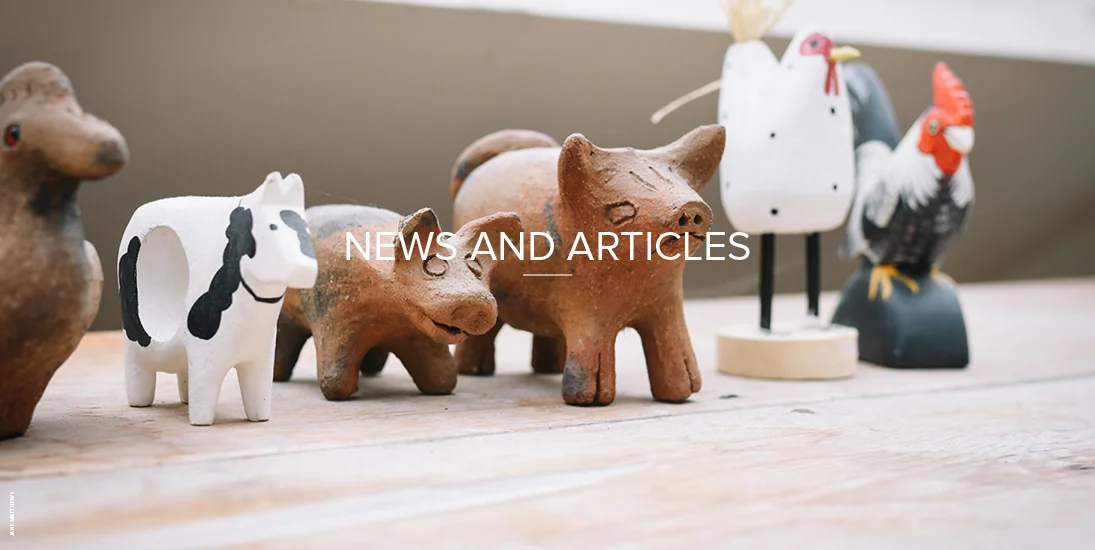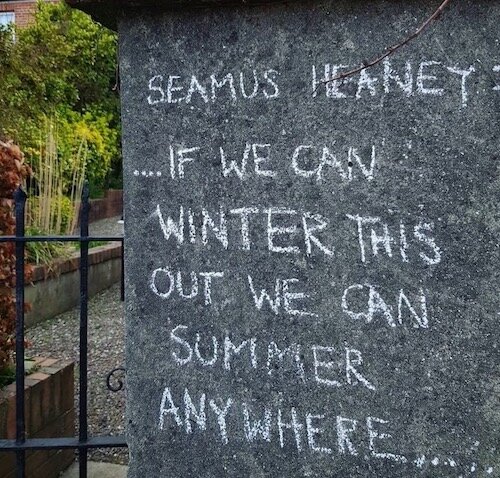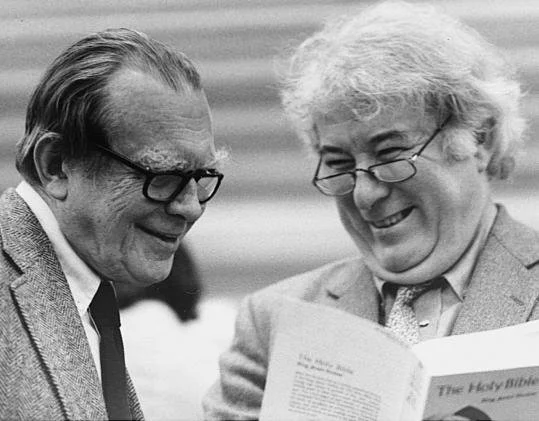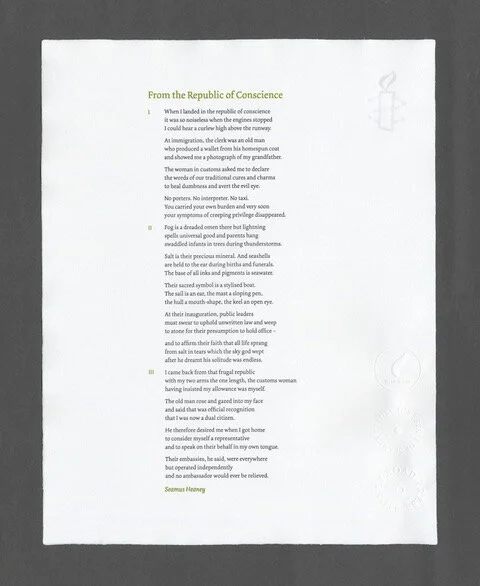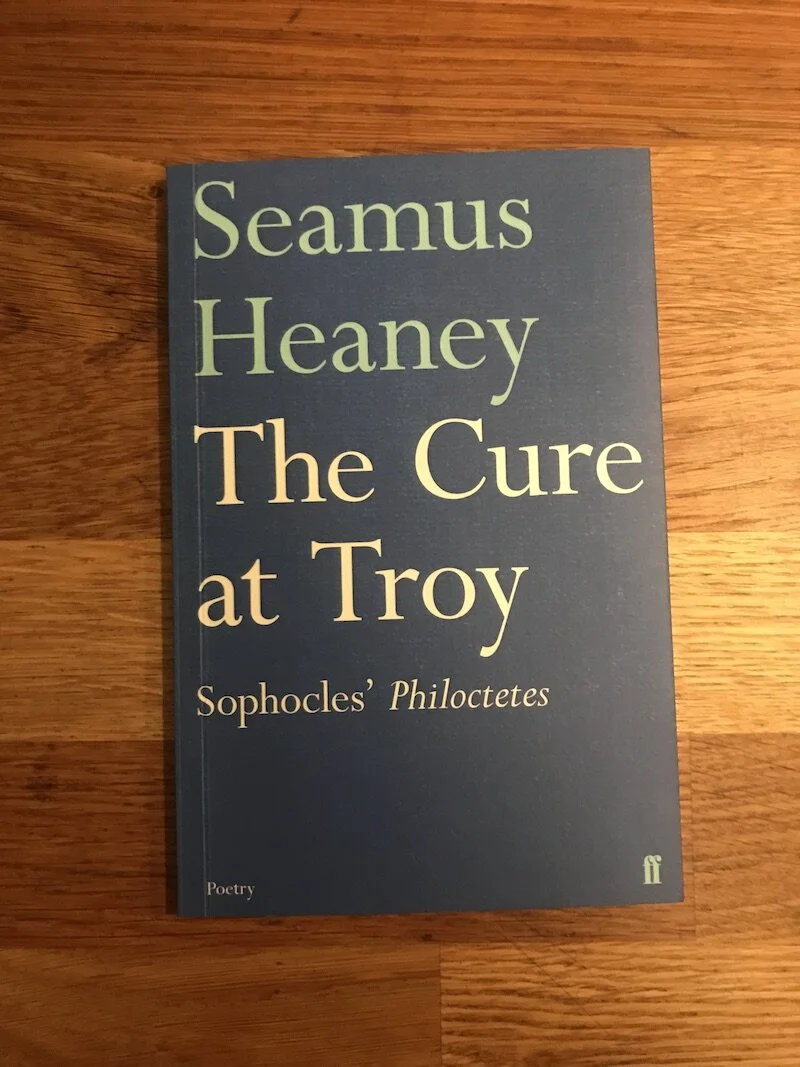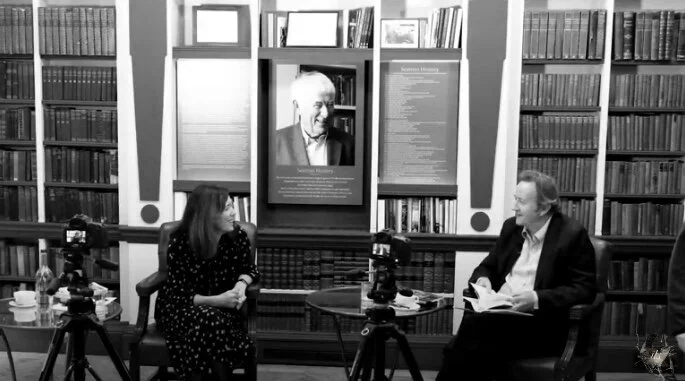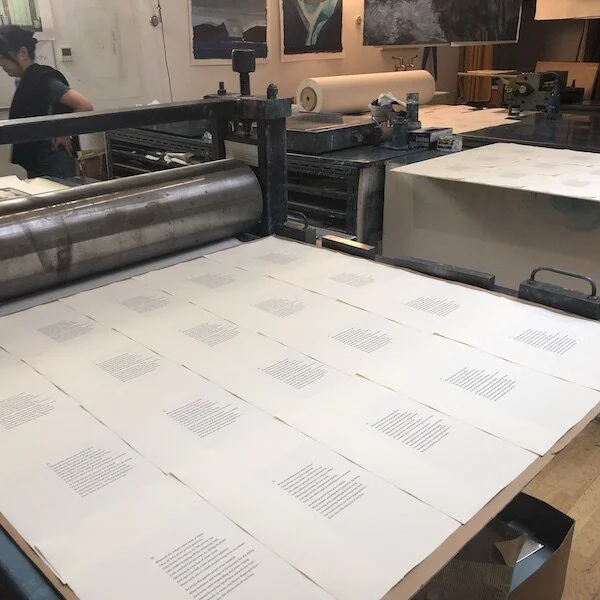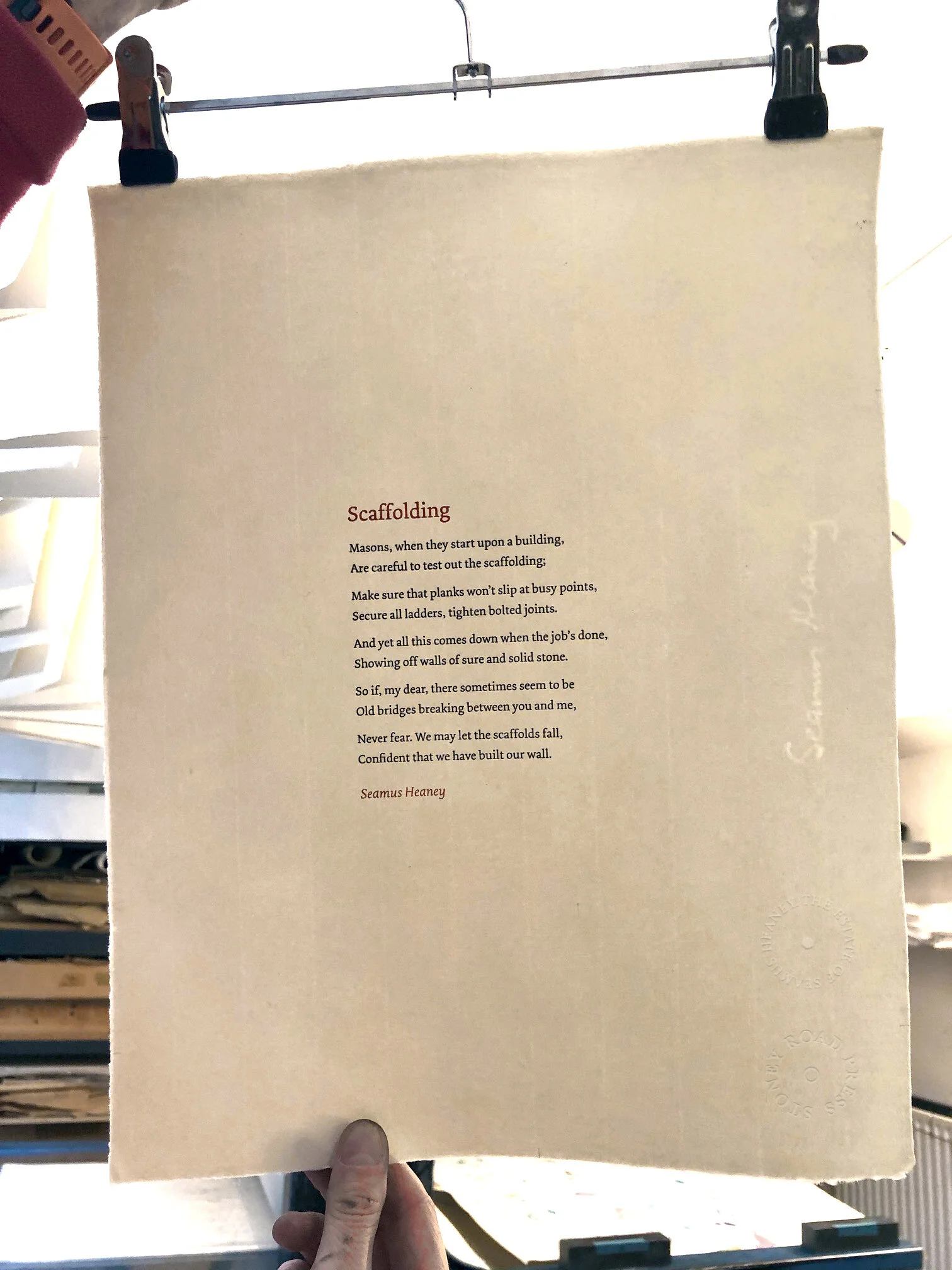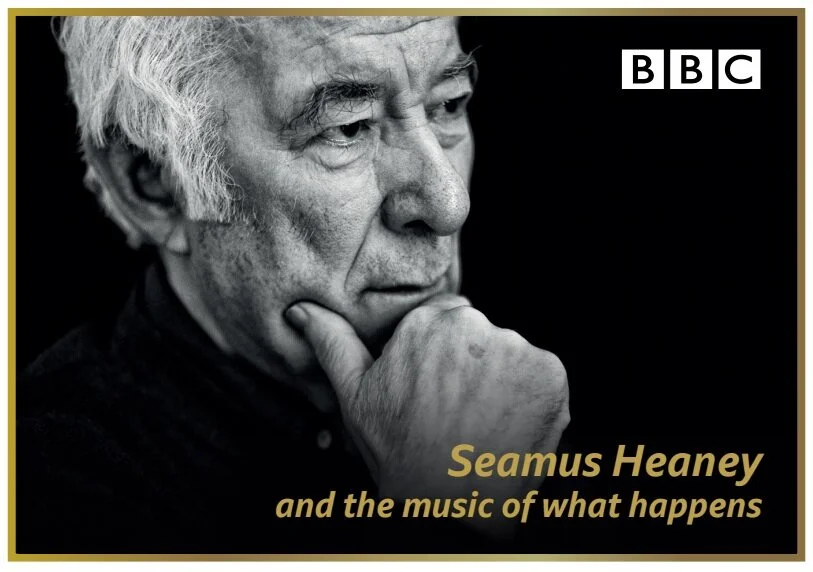Since the beginning of the current coronavirus crisis, people have been turning to poetry to express their bewilderment, to seek comfort, to put words to a situation that sometimes feels beyond comprehension. We have heard poems being read on the evening news, on morning radio shows, appearing on the front page of newspapers and all over social media – from Derek Mahon’s ‘Everything is Going to be All Right’ to Wendell Berry’s ‘The Peace of Wild Things’ to Gerard Smyth’s ‘Isolation’.
One line from Seamus Heaney in particular seems to have captured the public’s mood and our need for hope in a time of collective anxiety:
“If we winter this one out, we can summer anywhere.”
Oddly enough, this is not a line of poetry; it’s a quote from an interview he gave in 1972, referring to the Troubles in Northern Ireland at a time when they were at their most deadly. It was also an oblique reference to his third collection, Wintering Out, published in the same year. In Dennis O’Driscoll’s book of interviews, Stepping Stones, SH speaks of how the title for that volume came “from memories of cattle in winter fields. Beasts standing under a hedge, plastered in wet, looking at you with big patient eyes, just taking what came until something else came along. Times were bleak, the political climate was deteriorating.”
He may also have had in mind a line from a verse called ‘Sarah-Ann’ by the Tyrone poet and Presbyterian minister, WF Marshall (1888-1959). The song – about hiring fairs – includes the line:
“I wunthered in wee Robert’s,
I can summer anywhere.”
Over the past few weeks, we’ve been asked a number of times what Seamus Heaney might have said at another moment in which people are trying to find a light in the darkness. We can’t know, of course, but words have a way of finding their moment. Almost fifty years since it was uttered – whether chalked on a wall or quoted by the Taoiseach – this line has made its way back to us. May the summer come soon.

